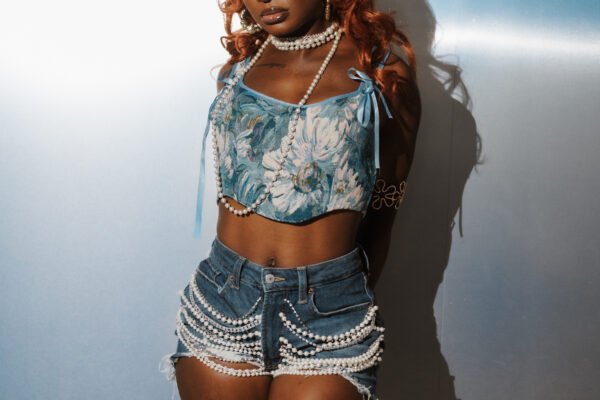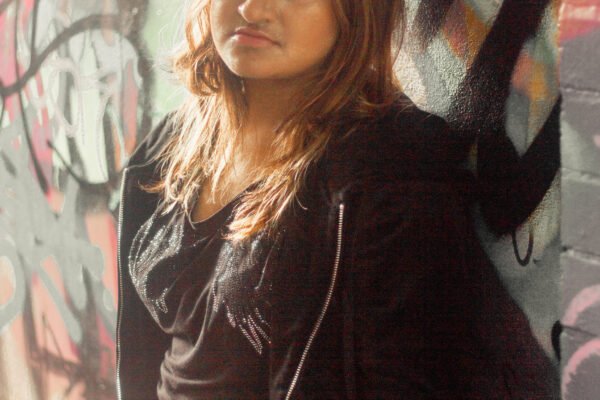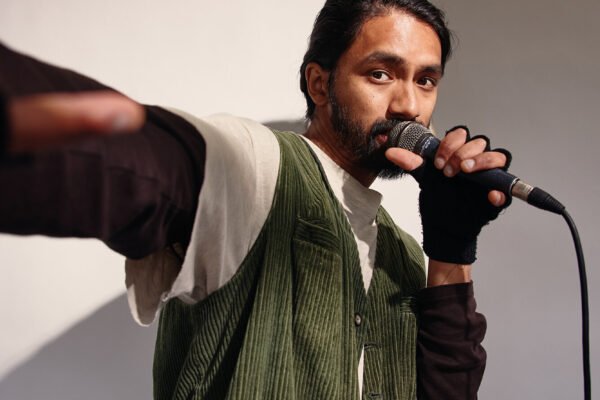Hi! You wear many hats in the music industry—songwriter, artist, producer, and label president. How do you balance these diverse roles, and how does each influence the other?
A: You forgot being a mother and a wife on top of that! Hah Honestly the beautiful
part of it all is that every part of my life fits into the ecosystem I’ve been fortunate
enough to create for myself, my partners and my family. My family drives me,
which drives my production and songwriting, which drives my label. It’s a
beautiful symbiotic relationship.
Kolossal Records emphasizes artist development and autonomy. What inspired you to establish your own label, and how do you envision it redefining the landscape for emerging talent?
A: If I’m speaking frankly, what inspired me the most was being disrespected. Last year I had a situation where I poured my heart and soul into the development of an artist. It was really the first time in this business that this has ever happened to me and I was really caught off guard. The artist’s team treated me like absolute garbage despite the work I put in, but now have me to thank for getting their artist multiple steps closer to ultimately cracking what the sound is. I don’t need to say more about that situation, but what I will say is that Kolossal was born out of my realization that I had a knack for sound development and artist development, but while respecting the creators, trusting the artist’s vision, and myself at the same time.
Collaborations have been a significant part of your career, leading to over 60 million cross-platform streams. How do you approach collaborations, and what do you believe is the key to a successful partnership in music?
A: The most important part of collaboration is to let everyone play to their strengths and not overshadow other people’s ideas. I’ve found that this approach keeps people really passionate about their contributions and allows people to excel their strengths at the same time. Always do what’s best for the song, not for your ego!
Your writing and production work on Dom Vallie’s ‘See You When I See You’ earned a 2025 JUNO Award nomination for Rap Album of the Year. Can you share insights into the creative process behind this project?
A: It’s an incredible honour – I think Dom is one of the greatest and he’s really on his way up to making history. I was brought into that session with my pals Just Ideas (Jorge Pineda and Josh Polasz) and Dom. They had a nugget of a song about 60 percent of the way there already, but my goal for the song “The Weekend” was to bring a little more pop flavour and structure, to get the bass to slap a bit harder and fill out the song prod a bit more. That song ended up being the lead single to the album and the first to go to radio.
As one of Canada’s youngest female producers and label presidents, what challenges have you faced in a traditionally male-dominated industry, and how have you overcome them?
A: I think most female producers are scared to call themselves producers because they are scared of being challenged by male producers on their knowledge of “gear” and “how many luffs are the right amount etc”. But the truth is that I realized that nobody really knows what the exact formula is, but if it sounds good then you need to trust your ears and instincts. I try to always lead with confidence, especially when I start to feel imposter syndrome kick in.
Your versatility extends to playing multiple instruments, which enhances your songwriting and production capabilities. How has this musical proficiency shaped your approach to creating music?
A: I always used to hate music school because it was so hard! I would constantly complain and ask my piano teacher why I would ever need music theory. Turns out I have to use and rely on music theory EVERY day now. Sometimes I don’t even realize how engrained it is in my mind and the way I live life. It’s sort of become muscle memory as well, but being in a choir for 8 years and singing every part of it has helped me develop my signature gang vocals and choir arrangements very much.
With placements in popular TV shows like NBC’s ‘The Voice’ and Netflix’s ‘The Ultimatum,’ how do you tailor your music for synchronization opportunities, and what impact has this exposure had on your career?
A: It’s a different experience each time! For film and tv, sometimes I’ll be approached to create a custom score to picture, sometimes an original pop song for a movie, or sometimes they just want to license a song that’s already been released. More artists need to explore the world of sync, because it is the best opportunity to actually see money for your work.
Kolossal Records’ upcoming release of Amarii’s debut EP is highly anticipated. What drew you to Amarii’s music, and what can listeners expect from this collaboration?
A: Amarii has one of the most touching stories of strength and positivity and when I heard it, I needed to help him tell it. Listening to his music will take you through a journey of humour, wit, sarcasm, and devastation. We can’t wait to share more with you in 2025.
Having garnered recognition from industry heavyweights like Gareth Emery and Tiesto, how do you stay true to your artistic vision while appealing to a broad audience?
A: As a producer, my artistic vision is only important after the artist has said what
they wanted to say. My vision usually changes based on who I’m working with
because I let the artist in the room be the driver of their own music. Focusing on
making a great song first is key, then I treat the production as “fancy clothes for
an already good looking person”. If the song isn’t good, the production won’t
necessarily fix it. But if the song is already amazing, it’ll be great.
Listening to songs so you don’t have to! Just kidding :D, you totally should. Music blogger by day, nurse by night





